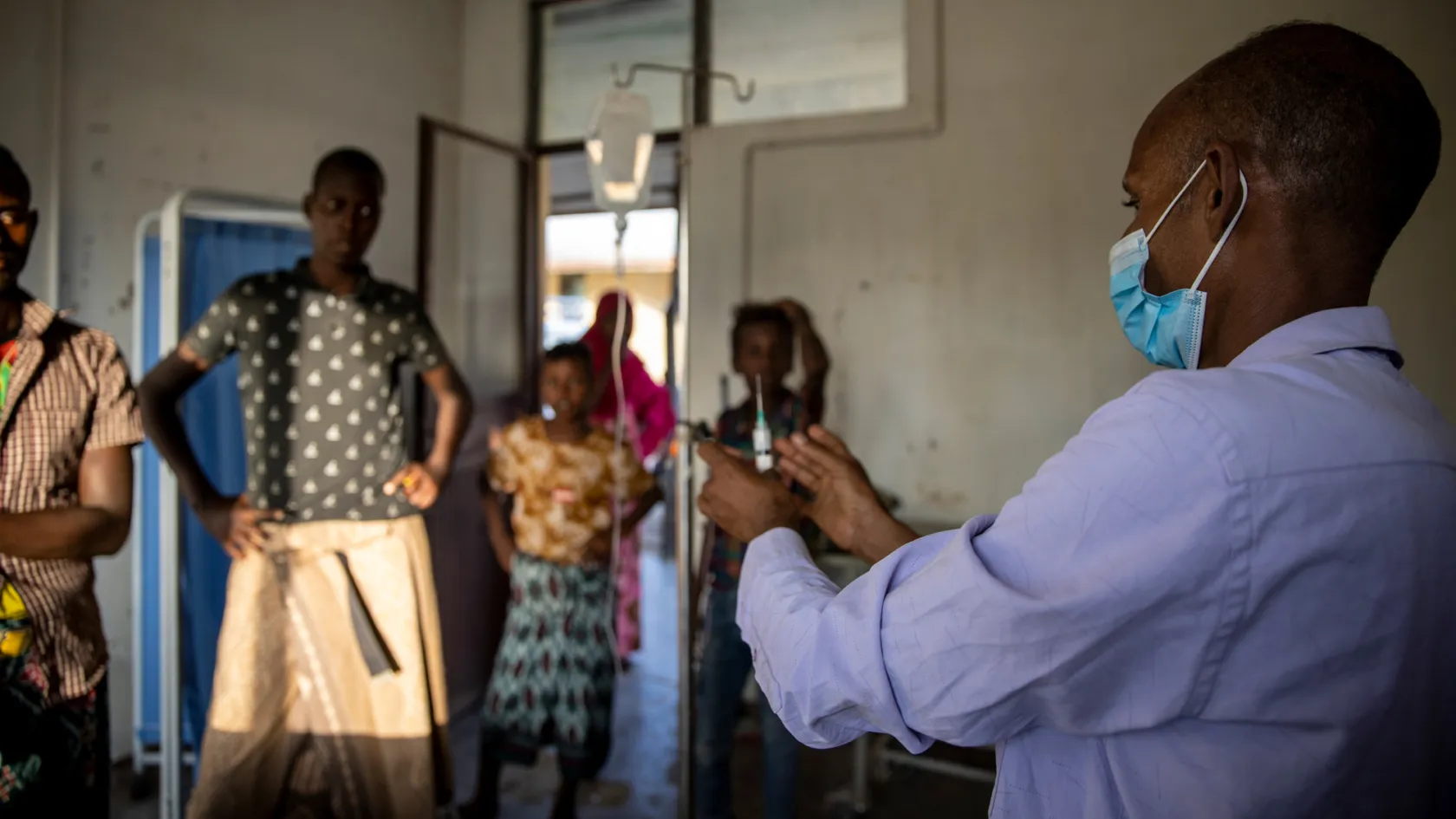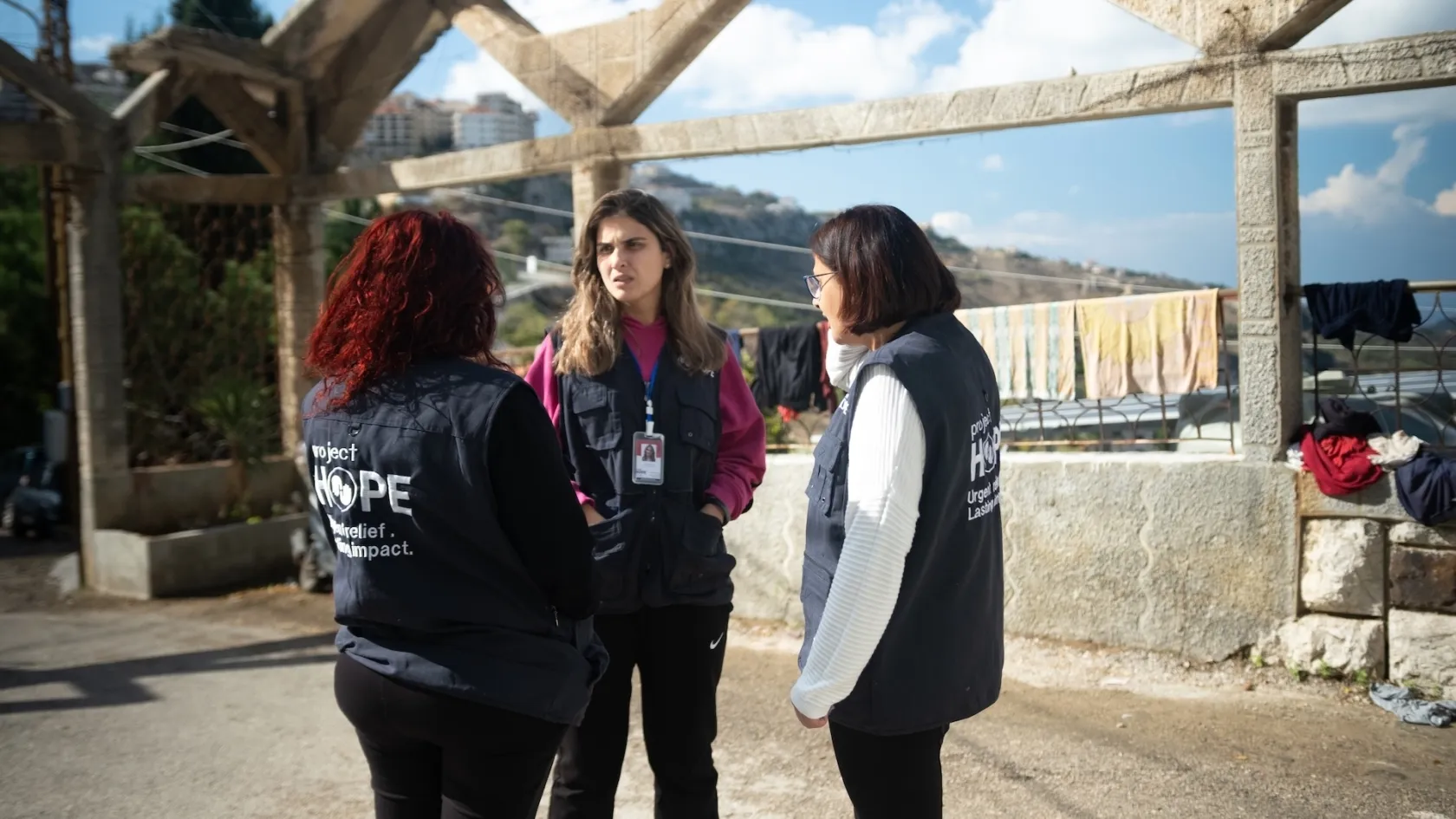Project HOPE Welcomes Ceasefire in Lebanon, Calls for Urgent Health Funding

Project HOPE welcomes today’s ceasefire agreement between Israel and Hezbollah, which opens a vital window to address Lebanon’s severe humanitarian crisis and hopefully allow residents to return home on both sides of the border. The conflict has killed over 3,600 people and forced more than one million to flee their homes, overwhelming host communities and pushing Lebanon’s fragile health care system to the breaking point.
Even after fighting stops, addressing Lebanon’s humanitarian and health crisis will remain a top priority for Project HOPE and the international community. The country faces critical shortages of medical supplies, leaving preventable conditions untreated. Health care workers are exhausted, and many hospitals remain damaged or destroyed. The psychological toll of this conflict – displacement, loss of loved ones, and constant fear – has created an urgent and unrelenting need for mental health support across communities. Without immediate and sustained humanitarian assistance, more lives will be lost. Project HOPE calls on the United States and other nations to scale-up humanitarian assistance and funding to enhance the peace, support social cohesion, and enable the Lebanese government and NGOs to begin rebuilding its shattered health infrastructure.
Rabih Torbay, CEO and President of Project HOPE, said:
“Tonight, people in Lebanon can finally see the light at the end of the tunnel but work to rebuild Lebanon’s vital infrastructure has only begun. While the ceasefire is critical, it does not repair Lebanon’s devastated health system and the long-term effects of gaps in care. During my visit last week, I met mayors from border towns who lost loved ones simply because they couldn’t access basic medicines for diabetes or hypertension. In Mount Lebanon, I spoke with families living in overcrowded schools – many have no home to return to. At a hospital near the frontlines, I talked to the head nurse who triaged her children including her 14-year-old son who was tragically killed. She decided to leave nursing to care for her two surviving children who are injured. This is the reality for people in Lebanon today.
Lebanon urgently needs sustained international support. Over two million people need humanitarian assistance. There have been more than 130 attacks on health facilities, and many are completely out of commission. Pharmacy shelves sit empty while communities wait for vital shipments to arrive. Health care workers – who have worked continuously for two months, sleeping in hospitals away from their families – are at their breaking point. Lebanon’s health system was already fragile before this crisis. The psychological wounds of this conflict run deep, and mental health support will be crucial for communities to heal. Without immediate international aid and long-term investment, this health emergency will claim more lives long after the guns go silent.”
Roy Sayegh, Project HOPE’s Team Lead based in Beirut, said:
“We are relieved to hear about the ceasefire agreement. While some people will go back to their homes tomorrow, too many people no longer have somewhere to call home. People have lost everything. It will take weeks if not months to remove the rubble. The physical impact of the conflict is coupled with a heavy mental health toll. People have been in survival mode for so long. Now, people must process trauma, deal with anxiety, and face a profound sense of loss.
We have a lot of work ahead of us. The needs people have will not go away tomorrow. We must continue to focus on supporting the Ministries, our partners, health care workers, and frontline responders to deliver lifesaving health and mental health services.”
In Lebanon, Project HOPE is coordinating with the Ministry of Public Health and local partners to deliver medical supplies, provide Psychological First Aid training, and operate fully staffed mobile medical units as well as distributing hygiene and winterization items to families displaced by the violence.
Project HOPE has team members available for interviews. For media inquiries, contact media@projecthope.org or Bria Justus at +1 503-764-7864.



